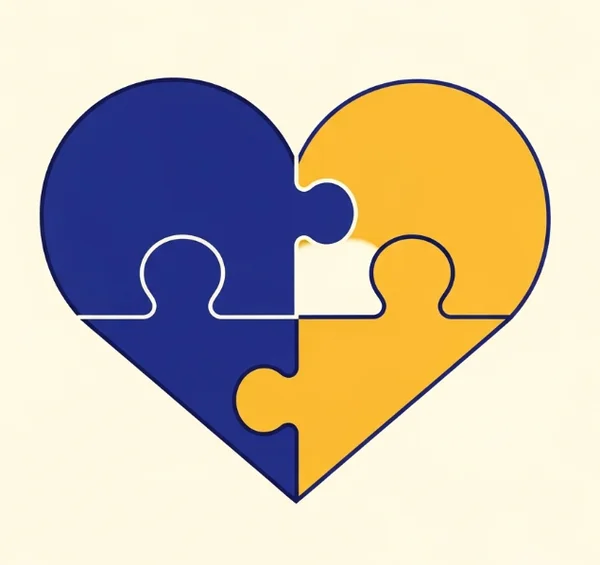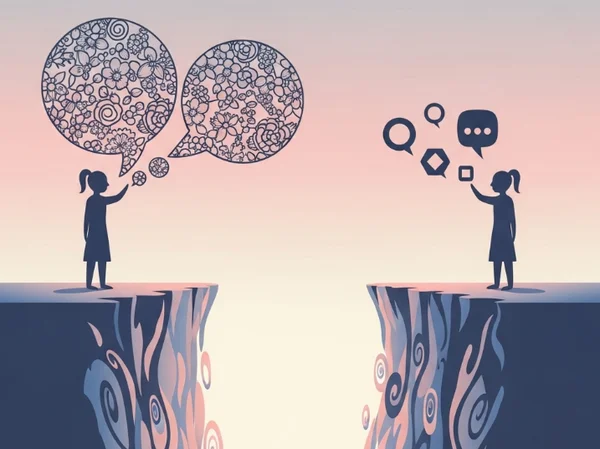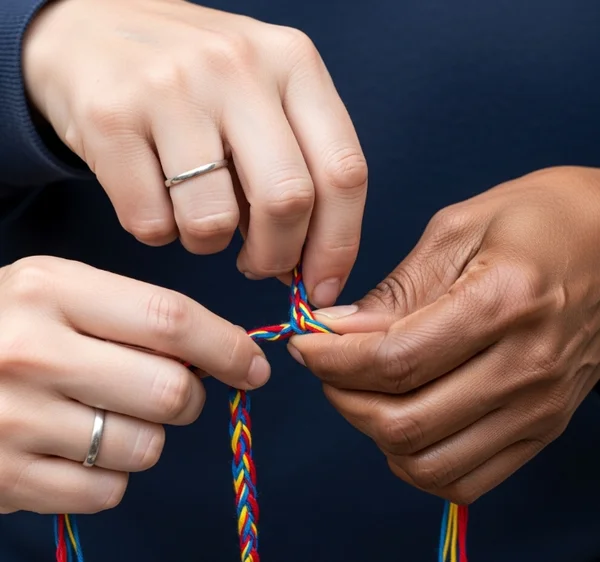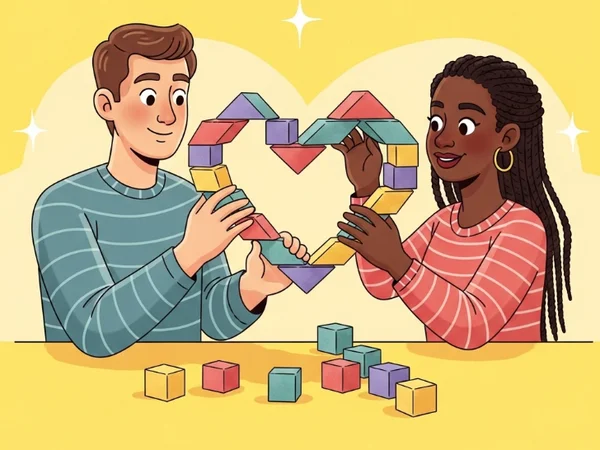Do Love Languages Need to Match for a Happy Relationship?
May 23, 2025 | By Hannah Carter
It's a common question for couples navigating the complexities of connection: Do love languages have to match for a relationship to truly flourish? You might have discovered your partner primarily feels loved through Quality Time, while you crave Words of Affirmation. This difference can lead to worry about love language compatibility and whether your different love languages relationship is doomed. The good news is, while differences present challenges, they don't automatically spell trouble. This guide explores how to navigate these disparities and build a thriving partnership, even if your primary languages aren't a perfect match. Understanding these dynamics is key, and you can always explore your own love language profile on our site.
Most Couples Have Different Love Languages
First, let's normalize the situation: it's actually very common for partners in a relationship to have different primary love languages. Why are different love languages normal?

Why Differences Are Normal and Expected
Each individual is unique, with their own upbringing, experiences, and inherent ways of perceiving and expressing affection. It would be more surprising if every couple perfectly mirrored each other's emotional needs and communication styles from the outset. These differences are part of what makes relationships dynamic and interesting.
It's Not About "Right" or "Wrong," Just Different
No single love language is superior to another. One partner preferring Acts of Service while the other values Physical Touch doesn't mean one is "right" and the other "wrong." It simply means they have distinct primary channels for giving and receiving love. Recognizing this non-judgmentally is the first step.
Understanding the Challenges of Mismatched Love Languages
While not a deal-breaker, having a different love languages relationship can present certain relationship challenges. What problems can arise from mismatched love languages?

Feeling Unseen, Unheard, or Unloved
If you consistently express love in your primary language, but it’s not your partner's, they might not fully register your affection. For example, if you shower them with gifts (Receiving Gifts) but their language is Quality Time, they might still feel a void or a lack of emotional connection, despite your efforts.
Communication Breakdowns and Misinterpretations
Mismatched languages can lead to significant communication issues. You might think you're shouting your love from the rooftops, but if it's not in a "dialect" your partner understands, the message gets lost. This can lead to frustration and the feeling that your partner doesn't understand you.
The "Empty Love Tank" Syndrome
Dr. Gary Chapman, who popularized the five love languages, talks about an "emotional love tank." If a partner isn't receiving love in their primary language, their tank can run low, leading to feelings of neglect, dissatisfaction, or resentment, even if their partner is trying hard in other ways.
Your Love Languages Don't Have to Match Perfectly!
Now for the crucial part: Can different love languages work in a relationship? Yes, absolutely!
Dispelling the Myth of Perfect Compatibility
The idea that love languages match perfectly for soulmates is largely a myth. True relationship compatibility isn't about being identical; it's about understanding, adapting, and committing to meeting each other's needs. Many successful, long-term couples have different primary love languages.
Success Lies in Understanding and Effort
The key to making different love languages work is mutual understanding, empathy, and a willingness from both partners to learn and speak each other's language. It requires conscious effort and a commitment to relationship building.
Bridging the Gap: Strategies for Making Different Love Languages Work
If you and your partner have different primary ways of feeling loved, here are practical strategies to bridge that gap. How can couples with different love languages make it work?

Identify Both Your Primary Love Languages (Know Thyself & Thy Partner)
This is foundational. You can't effectively meet each other's needs if you don't accurately know what they are. Discuss your feelings, observe each other, or, for a clear and objective understanding, take a comprehensive love language test together. Knowing your love language profile is empowering.
Learn to "Speak" Their Language (Even if It's Foreign to You)
Once you know your partner's primary language, make a conscious effort to express love in that way, even if it doesn't come naturally to you. If their language is Acts of Service, look for ways to help them. If it's Words of Affirmation, practice verbalizing your appreciation. This is about learning to love differently.
Communicate Your Needs Clearly and Kindly
Don't expect your partner to be a mind-reader. Gently and clearly communicate what makes you feel loved. For example, "It really makes me feel loved when we spend uninterrupted time together," or "Hearing you say you appreciate me means so much." This fosters open communication.
Practice Empathy, Patience, and Grace
Learning to speak a new "language" takes time and effort. Be patient with yourself and your partner. Practice empathy by trying to see things from their perspective. Offer grace when attempts aren't perfect. Relationship effort is ongoing.
Find Common Ground and Compromise
Look for overlaps. Perhaps your secondary languages align. Also, be willing to compromise. Maybe you dedicate specific times to focus on one partner's language, then switch. Couple compromise is essential.
The Importance of Effort and Understanding Over Perfect "Compatibility"
Ultimately, the success of a relationship with different love languages hinges less on the initial "match" and more on the ongoing commitment to understand and cherish each other.

Love as a Choice and a Series of Actions
Choosing to learn and speak your partner's love language is a powerful act of love in itself. It demonstrates commitment and a desire to meet their emotional needs, which strengthens the relationship bond.
Building Your Own Unique "Couple Language"
Over time, as you both make efforts, you'll develop your own unique blend of expressing and receiving love that works for your specific relationship dynamic. This shared language becomes a testament to your connection.
When to Seek Help if Love Language Differences Cause Major Issues
While most couples can navigate these differences with effort, sometimes persistent misunderstandings can lead to significant distress. What if different love languages are causing serious problems?

Recognizing Signs of Deepening Disconnect
If, despite your best efforts, you consistently feel unloved, unheard, or if arguments about unmet needs are frequent and unresolved, it might indicate a deeper issue.
The Role of Professional Relationship Counseling
A qualified relationship counselor can provide a neutral space to explore these dynamics, improve communication skills, and help you develop strategies tailored to your specific situation. They can facilitate understanding and help you bridge the gap if you're struggling to do so on your own. Seeking professional advice shows a commitment to your relationship health.
Thriving Together: Love Languages as Tools for Connection, Not Division
So, do love languages need to match? The answer is a resounding no. While having different primary love languages presents unique relationship challenges, these are entirely surmountable with awareness, effort, and a shared commitment. Think of love languages not as rigid boxes that define your love language compatibility, but as valuable tools that, when understood and utilized, can deepen intimacy and strengthen your bond.
The journey starts with understanding. The first crucial step to bridging any love language gap is accurately identifying both your own and your partner's primary languages. Our free love language test can provide this essential insight.
How have you navigated differences in love languages in your relationships? Share your experiences and tips in the comments below!
Mismatched Love Languages FAQs: Your Concerns Addressed
Here are some common questions people have about navigating relationships with different love languages:
Is one love language combination more "incompatible" than others?
Not necessarily. While some combinations might seem intuitively more challenging (e.g., someone needing constant Words of Affirmation with a partner who is very reserved verbally), success depends far more on the individuals' willingness to understand and adapt than on the specific combination of their love language types.
How long does it take to adapt to a partner's different love language?
There's no set timeline. It's an ongoing process of learning, practicing, and refining. Some progress can be seen quickly with conscious effort, but fully integrating it into your relationship dynamic is a journey. Patience and consistency are key.
What if my partner isn't willing to learn my love language?
This can be a significant relationship challenge. Open, honest (but non-accusatory) communication is the first step. Explain how important it is to you. If there's continued unwillingness, it might signal deeper issues that could benefit from professional counseling. A relationship requires effort from both sides.
Can our love languages change to become more similar over time?
While primary love languages tend to be relatively stable, our appreciation for other languages can grow, especially as we consciously work on our relationship and mature. Significant life events can also sometimes shift priorities. However, it's more about learning to speak different languages than fundamentally changing your own primary one. You can always re-evaluate your love language profile with a test if you feel things might have shifted.
Will knowing our love languages solve all our relationship problems?
No, it's not a magic bullet. Knowing your love languages is a powerful tool for improving emotional connection and communication, which can resolve many issues. However, relationships are complex and face various relationship challenges (finances, life goals, external stressors, etc.) that require other tools and strategies alongside understanding love languages.